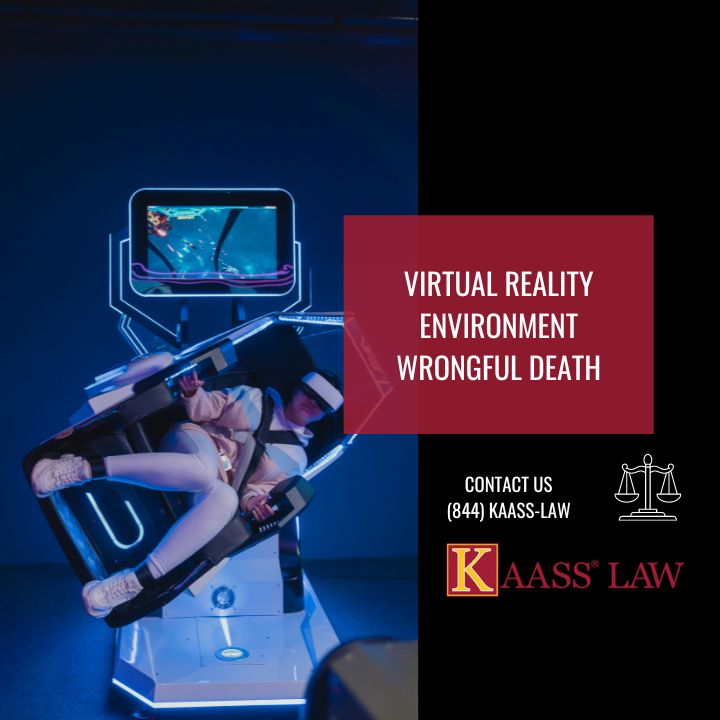The rapid advancement of virtual reality (VR) technology has propelled humanity into immersive digital realms that once seemed confined to science fiction. As we embrace this new era of experiential computing, a unique set of challenges emerges, including the unexplored terrain of wrongful death in virtual reality environments. This essay delves into the intricate legal and ethical dimensions surrounding wrongful death in VR, shedding light on the complexities of accountability, jurisdiction, user consent, and the blurred boundaries between reality and virtuality.
Legal Complexities
Virtual reality operates beyond traditional geographic boundaries, traversing virtual landscapes that exist solely in the digital domain. Determining the appropriate jurisdiction to address wrongful death cases becomes a complex puzzle. The virtual environment is unbounded by physical territories, blurring the lines of responsibility and legal authority.
In VR environments, software glitches, errors, or technical malfunctions can result in fatal consequences for users. Establishing liability in such cases presents a challenge, as it requires a thorough understanding of software development practices, quality control measures, and the nuances of virtual experiences.
The entities that design, develop, and operate VR platforms hold a significant degree of control over user experiences. Wrongful death scenarios in VR could prompt questions about the platform operators’ duty of care, their responsibility to ensure the safety of users, and the extent to which they can be held accountable.
Ethical Considerations
Users of virtual reality environments often perceive the experiences as divorced from reality, leading them to take risks they might not consider in the physical world. Balancing users’ expectations with the genuine risks of the virtual experiences raises ethical concerns about user safety and informed decision-making.
In VR, users willingly engage in scenarios that simulate danger or adventure. In other words, it blurs the line between consent and coercion. The issue of informed consent becomes central, as users might not fully comprehend the potential consequences of their virtual actions.
Virtual reality can evoke intense emotions, ranging from exhilaration to fear. Wrongful deaths within these immersive environments can have profound psychological impacts on users who witness or are involved in such incidents. As a matter of fact, this prompts ethical considerations about safeguarding users’ mental well-being.
The very essence of virtual reality is to create a convincing illusion of reality. However, this illusion can complicate discussions of responsibility.
Future Considerations
VR platform providers must develop user agreements. For example, explicitly addressing the risks and potential outcomes of virtual experiences. These agreements should outline the responsibilities of both users and providers. Additionally, it should clarify the extent of liability in cases of wrongful death.
As virtual reality becomes increasingly sophisticated, discussions about digital sovereignty and the establishment of jurisdiction within virtual environments will gain prominence. International collaborations will be crucial to defining legal frameworks that apply universally in the digital realm.
Virtual reality environments can integrate safety mechanisms. All things considered, that includes real-time monitoring, emergency shutdown features, or risk assessment prompts, to enhance user safety and prevent fatal accidents.
VR creators should adhere to ethical design principles that prioritize user well-being and emotional safety. Accordingly, with these principles, it can help strike a balance between delivering captivating experiences and minimizing negative consequences.
Contact a Wrongful Death Attorney Today
Certainly, wrongful death in virtual reality environments presents a frontier of legal and ethical challenges. They require novel solutions that transcend the confines of physical jurisdiction. Society continues to embrace immersive digital experiences. Also, the legal framework must evolve to ensure accountability and protect user rights in these digital domains. Ethical considerations must guide the development and deployment of virtual reality technology. By doing so, it promotes user safety, informed consent, and the preservation of mental well-being.
Additionally, be sure to visit our other website for more information regarding other cases we can assist you in.

